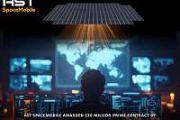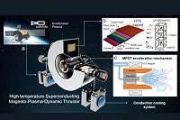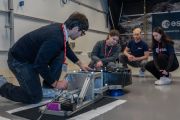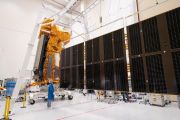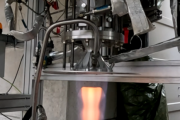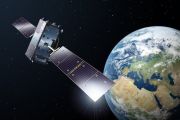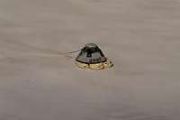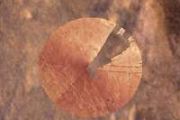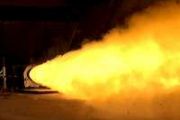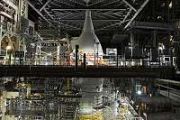
Copernical Team
Kepler Communications announces testing of Aether Network with Spire Global
 Kepler Communications has signed a contract with Spire Global to launch a test of Kepler's Aether network. This will serve as an initial test bed for Kepler's Aether service and will also help Spire evaluate how the technology can support its goal to collect accurate, timely and global data.
Announced at Satellite 2021, Aether is the fulfilment of Kepler's mission to enable the space econo
Kepler Communications has signed a contract with Spire Global to launch a test of Kepler's Aether network. This will serve as an initial test bed for Kepler's Aether service and will also help Spire evaluate how the technology can support its goal to collect accurate, timely and global data.
Announced at Satellite 2021, Aether is the fulfilment of Kepler's mission to enable the space econo Northrop and Raytheon complete Next Generation Interceptor review
 The Northrop Grumman and Raytheon Technologies Next Generation Interceptor (NGI) team has completed its System Requirements Review (SRR) and is proceeding with initial system design, further risk reduction testing, and critical component qualification activities.
The Missile Defense Agency (MDA) approved the SRR, which was completed ahead of schedule, and is the first major technical revie
The Northrop Grumman and Raytheon Technologies Next Generation Interceptor (NGI) team has completed its System Requirements Review (SRR) and is proceeding with initial system design, further risk reduction testing, and critical component qualification activities.
The Missile Defense Agency (MDA) approved the SRR, which was completed ahead of schedule, and is the first major technical revie USSF's EPS-R Program on Schedule for Historic Polar Mission
 A unique partnership with Norway and the U.S. Space Force's Space Systems Command will extend satellite communications for U.S. polar forces and save taxpayers millions of dollars.
SSC's Enhanced Polar Systems-Recapitalization (EPS-R) program successfully completed the ready-to-ship review at the end of September for the first of two payloads to begin the integration process onto Space Nor
A unique partnership with Norway and the U.S. Space Force's Space Systems Command will extend satellite communications for U.S. polar forces and save taxpayers millions of dollars.
SSC's Enhanced Polar Systems-Recapitalization (EPS-R) program successfully completed the ready-to-ship review at the end of September for the first of two payloads to begin the integration process onto Space Nor Honeywell, SES and Hughes demonstrate Multinetwork Airborne Connectivity
 Honeywell, SES and Hughes have successfully demonstrated multinetwork, multiorbit high-speed airborne connectivity for military customers, a technological breakthrough that will enable government and military personnel to communicate between the ground and air more efficiently and securely than ever. Honeywell's JetWave MCX broadband satellite communication (SATCOM) solution, using an HM-series
Honeywell, SES and Hughes have successfully demonstrated multinetwork, multiorbit high-speed airborne connectivity for military customers, a technological breakthrough that will enable government and military personnel to communicate between the ground and air more efficiently and securely than ever. Honeywell's JetWave MCX broadband satellite communication (SATCOM) solution, using an HM-series UAP: SkyCAM Searches the Sky
 Time and again, people see strange luminous phenomena or other phenomena in the sky that they cannot explain.
"Most of these observations concern known phenomena or objects such as birds, aircraft, satellites or clouds. But for a very small proportion, the cause remains unexplained even after intensive investigation by experts," says Hakan Kayal, Professor for Space Technology at Julius-Ma
Time and again, people see strange luminous phenomena or other phenomena in the sky that they cannot explain.
"Most of these observations concern known phenomena or objects such as birds, aircraft, satellites or clouds. But for a very small proportion, the cause remains unexplained even after intensive investigation by experts," says Hakan Kayal, Professor for Space Technology at Julius-Ma Japanese billionaire urges elites to visit space after ISS trip
 Japanese billionaire Yusaku Maezawa on Wednesday urged the world's elites to visit space to give them a new perspective of Earth, speaking after his own voyage to the International Space Station.
Together with assistant Yozo Hirano and cosmonaut Alexander Misurkin, Maezawa spent 12 days aboard the ISS, where they made videos documenting daily life in space for his one million YouTube subscr
Japanese billionaire Yusaku Maezawa on Wednesday urged the world's elites to visit space to give them a new perspective of Earth, speaking after his own voyage to the International Space Station.
Together with assistant Yozo Hirano and cosmonaut Alexander Misurkin, Maezawa spent 12 days aboard the ISS, where they made videos documenting daily life in space for his one million YouTube subscr Webb launch date confirmed for 25 December

The target launch date for the James Webb Space Telescope is confirmed for 25 December, as early as possible within the launch window starting at 12:20 GMT / 13:20 CET.
According to the planning of operations, the Ariane 5 launcher will be rolled out on 23 December, in the morning local time.
Japanese space tourist says he would love longer flight
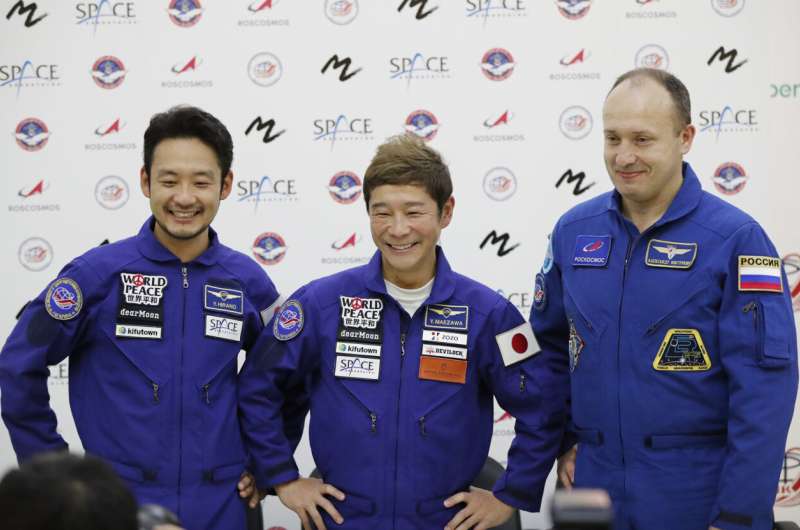
SpaceX is hoping to turn atmospheric CO2 into rocket fuel
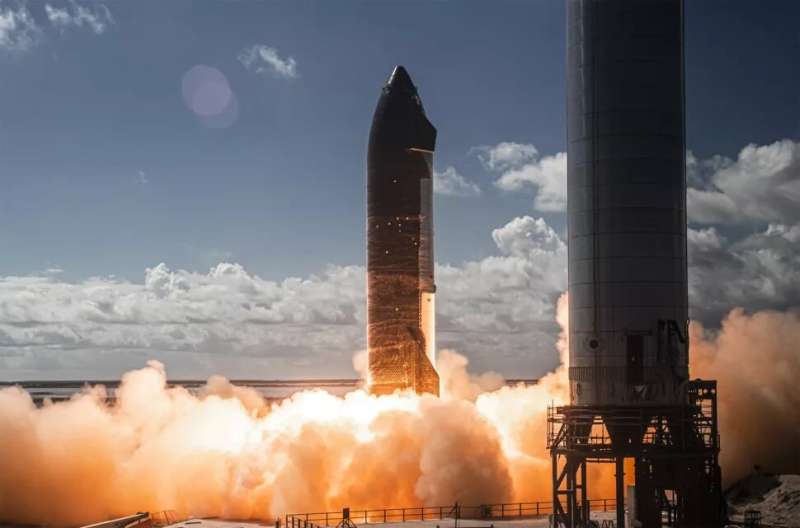
Earth is in the midst of a climate crisis. Thanks to rising CO2 emissions since the early 20th century, global temperatures are rising, triggering a positive feedback cycle that threatens to make it worse. According to recent analyses, even if the industrialized nations agree to slash carbon emissions drastically, global warming will not begin to slow until mid-century. For this reason, emission reduction needs to be paired with carbon capture to ensure we avoid the worst-case scenarios.
Meanwhile, there is a significant outcry from the public concerning commercial space. Whereas advocates like Elon Musk argue that increasing access to space is key to our long-term survival, critics and detractors respond by stating that commercial space "steals focus" from Earth's problems and that rocket launches produce excessive carbon emissions. In what could be a response to these challenges, Musk recently announced that SpaceX would be starting a carbon capture (CC) program to create propellants for his rockets.
The CC process begins with the removal of CO2 from the atmosphere through air scrubbers, absorption, chemical catalysts, or other methods.
James Webb telescope: How it could uncover some of the universe's best-kept secrets

If everything goes according to plan on December 25, we will enter a new era of astronomy with the launch of the James Webb Space Telescope (JWST). It's an event that has been anticipated for a decade—it will be the largest and most expensive and complex telescope ever built, tested and launched into space.
At the time of writing, the US$10 billion (£7.5 billion) telescope has been fuelled for its flight and mounted atop the Ariane 5 rocket at Europe's spaceport in French Guiana, which will carry it in to space.
The launch will be both exciting and terrifying for the thousands of scientists, engineers, managers and support staff who have brought JWST to this point. As chair of the Space Telescope Science Institute Council, which will run the operations center for JWST, I'll share their nervousness.









